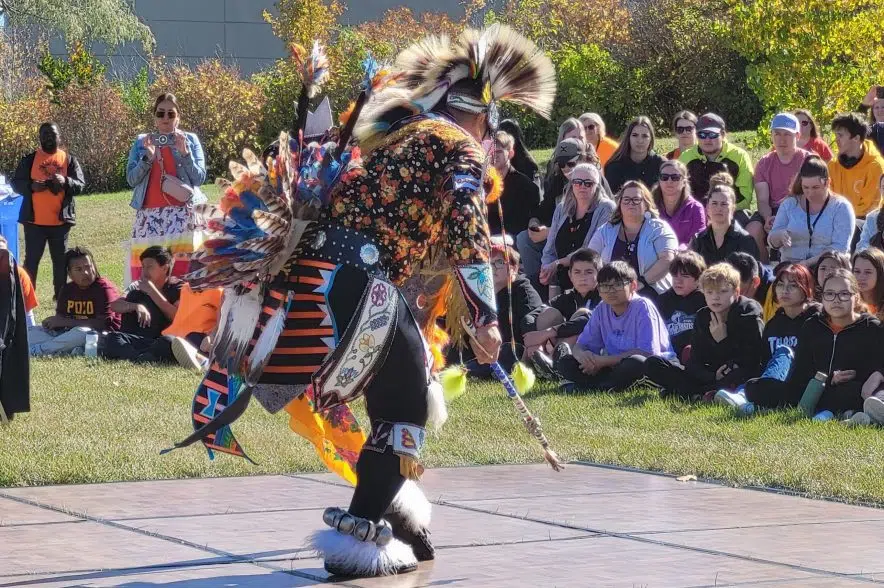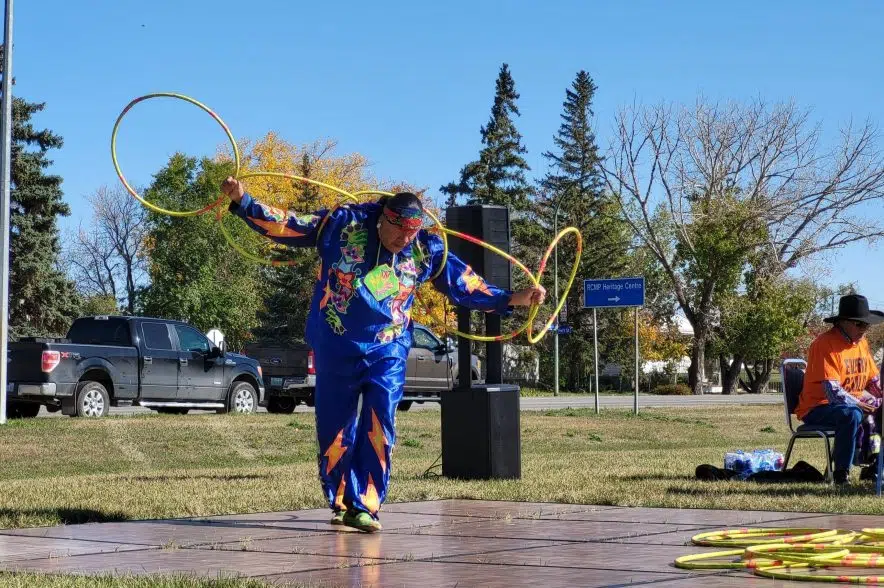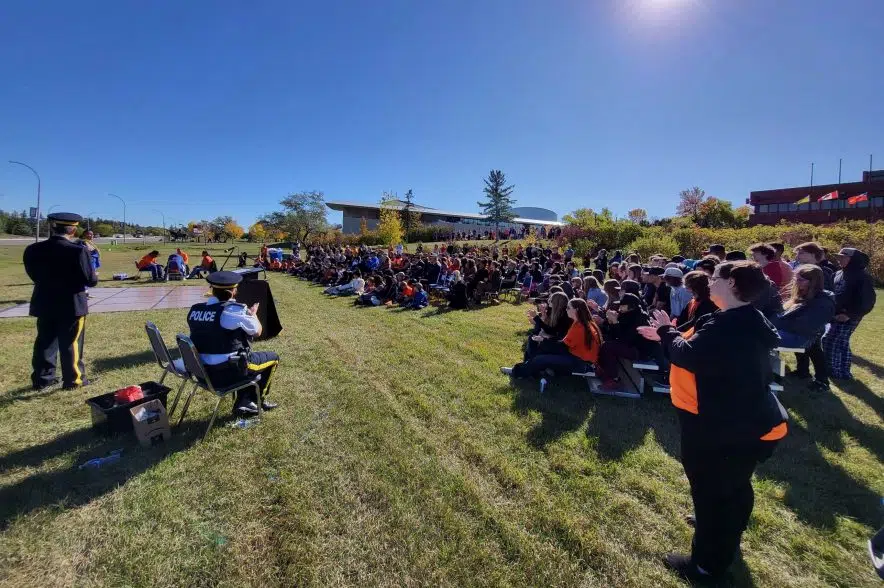In anticipation of the National Day for Truth and Reconciliation on Saturday, the Saskatchewan RCMP invited Indigenous performers to teach employees and the public about their culture.
The performances including hoop dances, singing, drumming, jingle dances and Métis rabbit dancing.
Hoop dancer Terrance Littletent performs in front of Saskatchewan RCMP Headquarters.
Sept. 28, 2023
(Daniel Reech/980 CJME)
Hundreds watched attentively while admiring the performances and the bright outfits. Several people in the crowd wore orange ‘Every Child Matters’ shirts.
Thomas Benjoe, from Muscowpetung First Nation, performed a prairie chicken dance at the event.
“It’s a ceremonial dance,” Benjoe said. “When we dance the prairie chicken at powwows, a lot of times what we’re imitating is the grouse, so if you ever watch when they do their mating dance, they do very specific movements to attract their mate, and so the dance itself is an imitation of that.”
Benjoe said he usually spends the National Day for Truth and Reconciliation with his family, as they try to keep up with events in the community.
“(Reconciliation) means a lot of things, but it’s trying to build an understanding,” he said.
“It has to start with truth first, being able to understand our history together and understand the things that Indigenous people have gone through, and the reconciliation side is being able to come together, being able to work together and understand one another, but doing it always in a good way.”
The Sask. RCMP hosted a cultural event ahead of National Day for Truth and Reconciliation. Sept. 28, 2023
(Daniel Reech/980 CJME)
Rhonda Blackmore, commanding officer of the Saskatchewan RCMP, said it was important to host an event like this on the federal police force’s front lawn.
“We need to recognize all of the contributions by our First Nations people, but even more so it’s important that we have an understanding of that First Nation culture,” Blackmore said.
She said it’s important for RCMP employees as well as the general public.
“The performances are wonderful to watch, but it’s even more impactful when we hear about the history and the meaning in all of those pieces of culture,” Blackmore said.
Blackmore said RCMP should acknowledge all aspects of Indigenous culture, beyond policing and public safety.
“To me, (reconciliation) means that we are acknowledging the past, acknowledging some of the harms that have been done in the past, but also looking towards the future as a brighter future,” Blackmore said.
When asked about how reconciliation changes the nature of policing, Blackmore said officers will have to take time to build trust and healthy relationships with Indigenous people.
As of Thursday, the Saskatchewan RCMP was still hosting the wooden monument carved by Stan Hunt in honour of Canadian residential school victims.
It is expected to stay until Monday.













